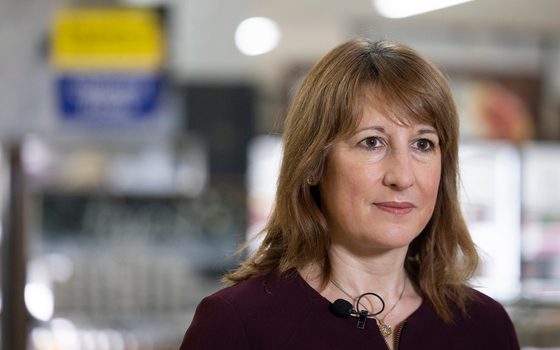UK net-zero ambitions threatened by higher interest rates
Green private investment must increase by £140bn over the next five years to hit UK net zero goals
02 September 2022
Embargoed 00.01 Friday 2 September 2022
The UK’s legal targets to slash dangerous carbon emissions are threatened by the rise in interest rates, according to a new report out today from the New Economics Foundation (NEF). The report argues that introducing a secondary, lower interest rate so green projects can get cheaper loans would add a much needed boost to the UK’s stagnating private sector investment, safeguard its net-zero ambitions, and help protect the country from future oil and gas price shocks. The report finds that UK private investment in carbon-cutting activities like home insulations and electric vehicle charging points needs to grow by an extra £140bn over the next five years to hit its net-zero goals.
According to NEF, the UK economy is suffering from prolonged lack of investment: UK business investment stagnated for the three years preceding the pandemic, and has fallen since Covid-19 struck.
Meanwhile, the Bank of England has raised interest rates and may continue to raise them further in an attempt to control the high levels of inflation primarily caused by skyrocketing energy prices. This also intentionally makes it more expensive for households and businesses to borrow. The report, however, argues that investment in net-zero projects like wind and solar farms are hit harder by the higher cost of borrowing than more polluting alternatives, as they have higher upfront costs. NEF finds that higher interest rates risk scuppering UK legal targets to cut dangerous carbon emissions to net zero by 2050 and that stagnating green investment will make the UK more vulnerable to future energy price shocks.
If the Bank of England introduced a secondary, lower interest rate, as recommended by NEF, it would make it cheaper for borrowers to invest in the green transition. The Bank could offer lower, zero or negative real interest rates to commercial banks who lend to green activities, while keeping a higher main policy rate which is adjusted to control inflation. Families looking to install heat pumps and insulation, or small businesses looking to invest in renewable energy and work with sustainable vendors could access much cheaper loans from commercial banks, regardless of whether the Bank’s interest rate increases for other activities. The report argues that this dual interest rate regime would not only allow the Bank to protect vital climate investments from interest rate hikes, but could give the Bank the “green monetary rocket fuel” it needs to boost investment in the net-zero transition.
NEF’s proposal is similar to successful schemes introduced in Japan, South Korea and China, and the way that the Bank allocated credit in the UK in the mid-20th century. The report argues that this could be achieved by simply tweaking an existing Bank of England scheme currently used to offer reduced rates to banks lending to households and businesses outside of the financial sector, called the Term Funding Scheme (TFS). The report finds that, for a comparable amount to what the Bank of England lent out via the TFS during the Covid-19 pandemic, the Bank could help finance the entire additional £250bn of private investment required by 2030 for the UK to reach net zero carbon emissions. In addition, NEF propose that the government should give the Bank an annual target for boosting lending to green activities.
The report from NEF recommends that:
- The Bank of England set up a secondary, lower interest rate via its existing Term Funding Scheme that protects vital green investments from rate hikes, boosts green activities, and reduces UK vulnerability to future energy price shocks.
- The new chancellor should give the Bank of England an annual target for boosting lending to green activities.
- The Bank of England set targets for how much commercial banks must lend to the green activities essential for reaching the UK’s net-zero targets.
Lukasz Krebel, economist at the New Economics Foundation, said:
“In order to decarbonise our economy, we need billions in new green investment. But the UK has suffered from a prolonged lack of private sector investment for years. Making matters worse, our ability to cut emissions fast enough to avoid climate catastrophe and reduce our dependence on volatile oil and gas is threatened when interest rates go up. Targeted cheaper lending for projects which will move us away from dangerous fossil fuels should be a no brainer.”
Notes
The New Economics Foundation is a charitable think tank. We are wholly independent of political parties and committed to being transparent about how we are funded.
The report, Green Credit Guidance, will be available at https://neweconomics.org/2022/09/green-credit-guidance from 00.01 Friday 2 September 2022.
The current iteration of the TFS, referred to above, is the Term Funding Scheme with additional incentives for SMEs (TFSME), implemented in March 2020.
The £250bn figure of additional private capital investment required between 2023 and 2030 (inclusive) is derived from the OBR’s central scenario for net zero transition in its Fiscal Risks report (July 2021) and the Climate Change Committee’s modelling in the Sixth Carbon Budget. £140bn figure is the amount of additional private sector investment required from 2023 to 2027.
Under the current TFSME, net drawings reached a peak of just over £192bn by end of 2021. If a Green TFS was implemented, with a 6‑year maturity for loans to banks, and was used to finance the private sector share of all additional capital investment required for net zero between 2023 and 2030, it would reach £212bn in drawings by 2030 (assuming repayment of earlier loans upon maturity).
Topics Banking & finance Climate change Environment Macroeconomics






